FSD and Huawei ADS2.0 hit hard, and Musk found Tesla’s stock price catalyst.
"(FSD landing in China) may be realized soon". Recently, elon musk, CEO of Tesla, made an "official statement" about FSD’s entry into China when replying to a question from a Tesla owner in China on social media "X" (formerly Twitter).
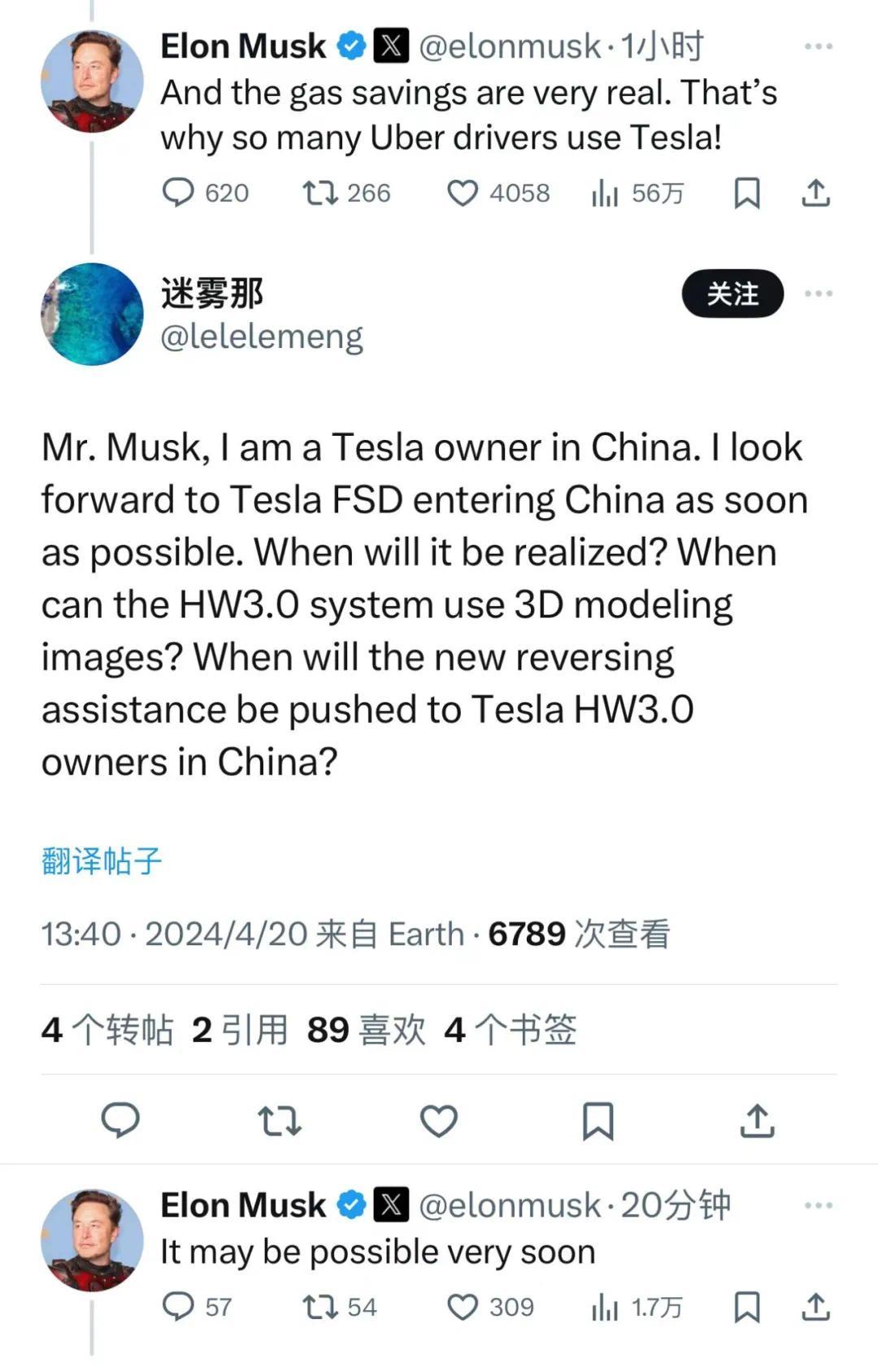
FSD is the abbreviation of "Full Self-Driving", which is the highest level in Tesla’s automatic driving sequence-the other two gears are basic version (AP) and enhanced assisted driving (EAP).
At present, FSD has been upgraded to the end-to-end version of V12.3, and the name of "beta" has been cancelled, and it is completely driven by neural network and data.
According to CITIC Securities, the more anthropomorphic driving style makes the ChatGPT moment of FSD promoting high-level autonomous driving approach.
Many other institutions have also expressed similar views that high-level autonomous driving is about to usher in an "inflection point".
But almost at the same time, the price of Tesla FSD in the United States was lowered by 33.3% from $12,000 to $8,000; The monthly subscription price has also been lowered from the previous $199 to $99, and customers can also get a month’s experience service for free.
It is worth mentioning that this is not the first time FSD has cut prices.
Before August 2023, the price of FSD in North America was $15,000.
At that time, Musk thought that the price of FSD was "very low", and if "fully automatic driving" could be realized, the market value of Tesla would be greatly increased.
At present, the price of FSD in China is unknown, but judging from the current price trend of the software, it is probably not higher than that in North America.
Because so far, in addition to Huawei’s ADS2.0, it is hard to say that China users have developed the habit of paying for a smart driving system-whether it is "fully automatic driving" or not.
01
FSD can make people sleep in the car?
For elon musk, it is true that he is often active on social media, but there are not many questions about answering a Tesla owner in China personally.
The owner asked Musk, "When will the FSD land in China? When can the new parking assist be pushed to the owner of Tesla HW3.0 in China? "
Although Tesla CEO’s reply is still unclear, it also shows that FSD is indeed in full swing to promote related matters.
In fact, since November 2023, news about FSD’s entry into China has begun to spread.
At that time, a new owner found that the description of FSD test information appeared in Tesla’s user manual.
According to public information, FSD supports high-speed NOA (navigation-assisted driving) and urban NOA, as well as functions such as automatic parking and intelligent calling. Even in complex road conditions, human drivers are often not required to intervene.
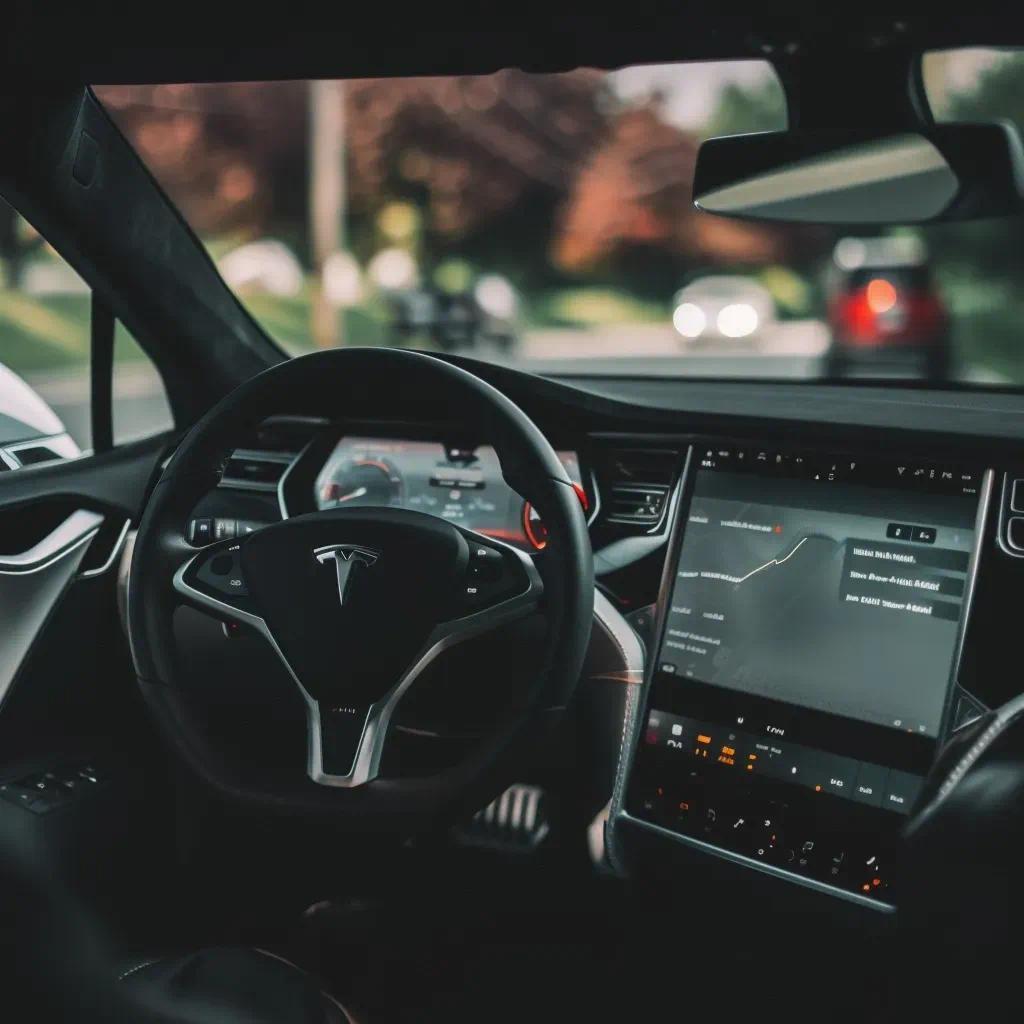
According to Musk’s statement at Tesla’s shareholders’ meeting, FSD beta users have accumulated 190 million miles (about 306 million kilometers), and their safety performance will be 10 times that of human drivers in the future.
As early as 2019, Musk said that FSD is very reliable and drivers can even go to sleep-but he strongly advised drivers not to sleep while driving.
In a live broadcast last year, he claimed that FSD no longer relies on program code to identify concepts such as roads and pedestrians, and all of them are left to the neural network to judge for itself.
However, Tesla CEO stressed that FSD can almost achieve "automatic driving", but it still needs improvement.
As a result, FSD has become one of the few trump cards in Tesla’s hands that can attract users in China.
In addition, it seems that Tesla’s landing in China FSD has already been laid out.
For example, as early as 2021, Tesla’s data center in Shanghai has realized the localized storage of China business, thus meeting the general rules of supervision.
It is worth mentioning that the policy on autonomous driving is also blowing warm air frequently.
In May 2023, the Shanghai Economic and Information Committee indicated that it would promote the layout of Tesla’s autonomous driving business in Shanghai.
Considering the relationship between Shanghai and Tesla (the latter’s only super factory is located in Shanghai), FSD’s entry into the China market is certain.
By the end of last year, with the Ministry of Industry and Information Technology and other four ministries and commissions jointly issuing the Notice on Launching the Pilot Work of Intelligent Networked Vehicles Access and Road Access, it was clearly stated that L3 and L4 intelligent Networked Vehicles with mass production conditions could be piloted in a limited area.
02
Autopilot makes Tesla worth 10 trillion?
It is no secret that Tesla is betting on autonomous driving technology.
In fact, over the past years, elon musk has been emphasizing the importance of autonomous driving to the automobile industry and its significance to Tesla.
As early as an internal meeting in 2022, Musk wanted to build a Robotaxi (self-driving taxi) with "no rearview mirror, accelerator or brake pedal, and steering wheel".
He stressed that he doesn’t want a "half-baked" Robotaxi, and Tesla must "take risks", that is, put all your eggs in one basket on autonomous driving.
The crazy CEO believes that Robotaxi will change everything and make Tesla a company worth $10 trillion.
Almost a year later, Morgan Stanley also threw out a similar view, but the tone was reduced-for example, "10 trillion US dollars" was counted as the size of the autonomous driving market, not the value of Tesla.
The well-known investment bank said in a research report that the Tesla supercomputer "Dojo" will bring Tesla a market value increase of up to 500 billion US dollars.
Morgan Stanley’s research report has worked.
Tesla’s share price soared by 10.09%, and its market value increased by nearly 80 billion US dollars.
At that time, Tesla’s market value was close to 870 billion US dollars.
But now, after more than half a year, Tesla’s market value is only about 450 billion US dollars.
In August, Tesla is said to release that Robotaxi.
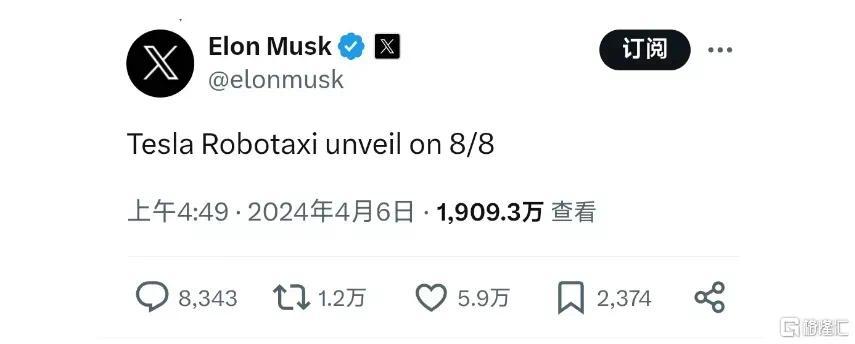
However, the price reduction of FSD now shows that the prospect of autonomous driving seems to be unable to bring additional aura to Tesla.
Musk’s explanation for FSD price reduction is that the price reduction is to let more users try this system.
I think the price of FSD will increase in direct proportion to its value over time, and the current low price is only temporary.
He also said that Tesla is willing to authorize other car companies to use FSD technology.
03
The "ethical" problem has been basically solved.
As far as the China market is concerned, users and investment institutions are generally optimistic about the FDS landing, and think that it will become the "catfish" in the smart driving market-the same role that Tesla was given after setting up a factory in Shanghai.
Guotai Junan believes that the entry of FSD into the China market will help the rapid development of the domestic autonomous driving industry.
CITIC Securities released a research report saying that FSD is expected to stimulate consumers’ willingness to pay.
This points out the pain point of the current smart driving market in China-except for Huawei ADS2.0, it is difficult for most car companies to realize the charging mode for their smart driving systems, and most of them are directly "sent" to users.
However, for a long time, autonomous driving systems, including Tesla, faced "ethical" problems.
In other words, who should be responsible for a traffic accident in a self-driving car?
In August 2022, Robotaxi, a "radish run" owned by Baidu, was rear-ended by a truck, and the rear car was judged to be fully responsible.
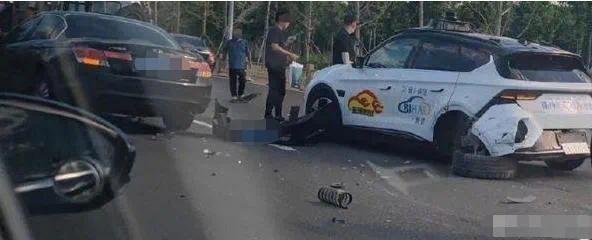
In 2023, Robotaxi of "Rapunzel Run" scraped another normal vehicle, but left the scene after a short pause.
This has caused a new problem-who should be responsible after the driverless car "hit and run"?
According to the Regulations on the Administration of Intelligent Networked Vehicles in Shenzhen Special Economic Zone, which was officially implemented in Shenzhen on August 1, 2022, if there is a violation of road traffic safety in an intelligent networked vehicle with a driver, the traffic management department of the public security organ shall deal with the driver according to law.
In case of road traffic safety violation during the period when there is no driver in the fully automatic intelligent networked car, the traffic management department of the public security organ shall deal with the vehicle owner and manager according to law.
In addition, if a driver’s intelligent networked car causes damage due to a traffic accident, the driver shall be liable for compensation.
If a fully self-driving intelligent networked car causes damage due to a traffic accident during the period when there is no driver, the vehicle owner and manager shall be liable for compensation.
On November 17, 2023, the Ministry of Industry and Information Technology and other four departments jointly issued the "Notice on Launching the Pilot Work of Intelligent Networked Vehicle Access and Road Access", which also clarified the responsibility of high-level intelligent driving accidents for the first time.
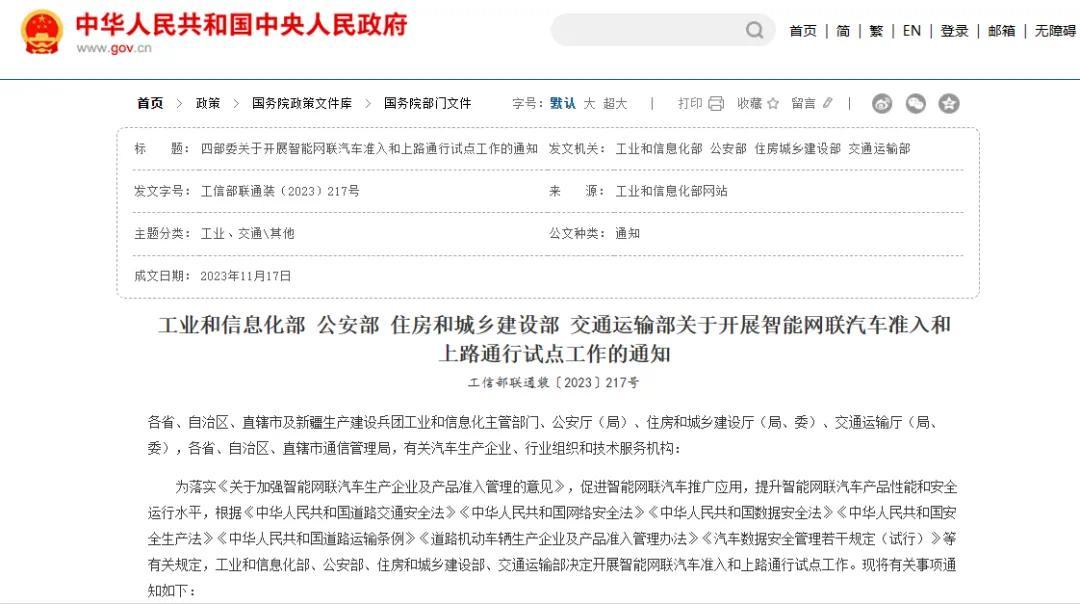
That is, if the autopilot system is not activated and an accident occurs, the responsibility shall be divided according to the current regulations.
If the autopilot system is activated, the pilot enterprise or the user shall submit relevant certificates, and if it is not submitted, it shall bear corresponding responsibilities.
Intelligent networked vehicles can be used as the object of liability judgment in accidents, and the pilot users are liable for compensation according to the liability judgment.
This basically clarifies the responsibility issues involved in the process of driving self-driving cars on the road.
However, it should be pointed out that the Notice jointly issued by the four departments is only a "pilot" at present.
04
Does FSD have security risks?
For Tesla’s FSD, the trouble is not only ethical issues, but also supervision.
At the end of last year, Tesla recalled more than 2.03 million electric vehicles.
According to the National Highway Traffic Safety Administration (NHTSA), the reason for the recall is that the autopilot system has security risks.
This is the second time Tesla recalled the car for the same matter last year.
In the recall in early 2023, Tesla recalled about 360,000 cars with "fully automatic driving test version" software installed.
The California Vehicle Authority (DMV) also believes that Tesla conducted "deceptive propaganda" when using the terms "Autopilot" and "FSD".
In 2022, DMV even brought Tesla to court on the grounds of "false propaganda" in autonomous driving.
California has also passed a bill prohibiting the description of "autonomous driving" in smart driving advertisements.
For Tesla to release Robotaxi in August 2024, DMV also said that it has not received Tesla’s application for related business in California.
However, judging from Musk’s statement, it is expected that these will not affect the smooth entry of FSD into China.
The only suspense at present is the price.
According to Tesla official website, the price of its "enhanced automatic assisted driving function" in China is 32,000 yuan, and the price of its "fully automatic driving ability" is 64,000 yuan.
This price is about $8,800, which is close to the price of FSD in the United States.
Correspondingly, on the eve of the Shanghai Auto Show in 2023, Huawei released ADS 2.0, with a one-time purchase of 36,000 yuan and an annual subscription of 7,200 yuan, and a monthly subscription to 720 yuan.
Whether FSD can continue to play the role of "catfish" in the smart driving market remains to be verified by time.